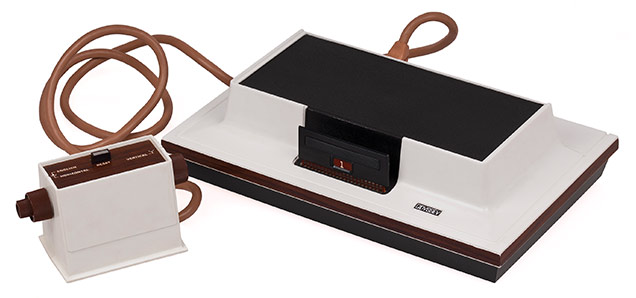Gaming The System: Do we need a second crash?
 CREDIT: WIKIPEDIA
CREDIT: WIKIPEDIAMaybe going back to simpler would be better.
If you’re enthusiastic about video games, you probably feel at times they are either the best they’ve ever been or are on a steady decline into an abyss of darkness. We’re seeing exciting new advances: the Occulus Rift VR headset; the push for 4K resolution in PC gaming; a new bar for graphical standards from the newer consoles (the PC ports, of course, look even better).
But on the flip side, the industry and developers have begun practices that are starting to put a bad taste in everyone’s mouths.
Lying, deception and a general contempt for the customer in the form of hidden charges, bad customer service and outright nickel-and-diming customers are actually accepted practices from developers.
Although there are still a few shining star gaming developers that sell units and push consoles, there seems to be a sense of gloom hanging around. Some feel that the time for the reset button being pushed is nigh; a second game industry crash is due.
But is a game crash really due to happen soon? A lot of naysayers feel so.
Despite the sales of the new generation of consoles, there isn’t anything truly landmark or amazing to really get people excited. A rather saturated market of samey-looking AAA titles and pixely or just plain obtuse indie titles has been the norm for quite a while.
But the circumstances under which the North American 1983 video game crash took place are quite different from what proponents of the 20xx video game crash idea are claiming. Despite the intellectual dishonesty of publishers and so-called game journalists, the consumer of today is still better informed and less likely to feel burned by unmet expectations with a purchase than the consumer of 1983. Back then, there were no real means of discussing or researching a game.
The concept of home video games is so normalized and ingrained in our culture that a slump seems as low as the business will get.
Should we have a crash? Not everyone who talks about a new game crash thinks it is inevitable, but rather, think it is necessary. The industry is far too rank with corrupt practices: bribery, lies, poor quality, paying off the mouthpieces of whom we trust to inform us.
Some feel that if there isn’t a catalyst that cleans up the industry, then there should at least be one that wipes the slate clean. Video game development in 1983 was quite exclusive to hobbyists selling tapes to magazines and companies big enough to make big pushes. If video games were to crash today, it would be more of a reset than in need of Nintendo-esque rescuing, because game development today has never been more accessible. True fans of play, rather than businessmen trying to squeeze every last penny, would take control back.













